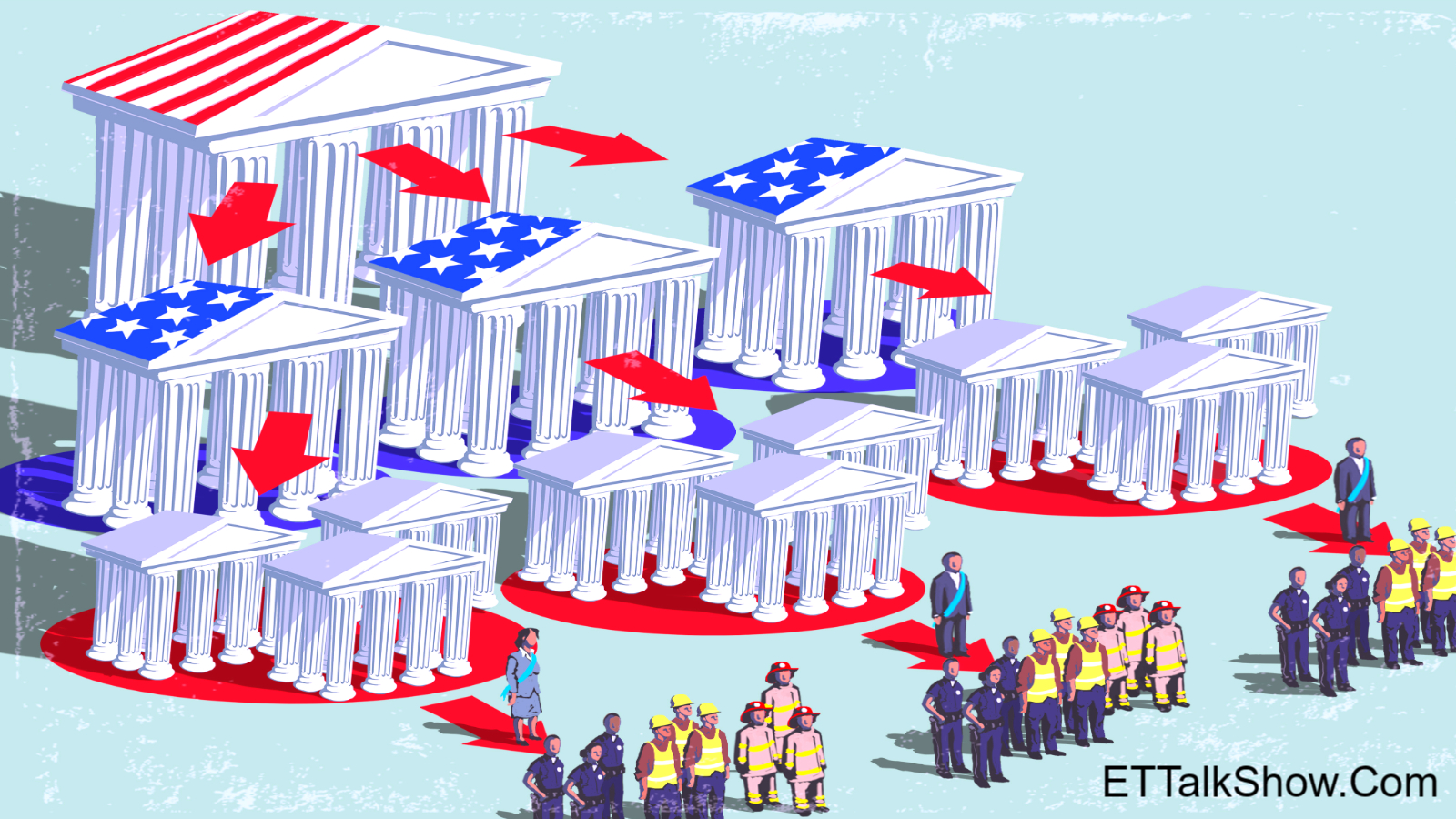In a nation where the spirit of self-reliance and limited government is woven into the very fabric of its Constitution, the ever-expanding reach of federal bureaucracy stands as a stark contradiction to America’s founding principles.
The 10th Amendment, a cornerstone of the Bill of Rights, was designed to safeguard states’ powers by ensuring that “The powers not delegated to the United States by the Constitution, nor prohibited by it to the States, are reserved to the States respectively, or to the people.”
Yet today, many conservatives argue that this key amendment has been overshadowed by an overreaching federal government.
Also Trending: Fani Willis’ Case Against Trump Dealt Blow By New Testimony
At the heart of this debate is President Joe Biden’s continued attribution of inflationary pressures to COVID-19—a rationale that some conservatives view as a deflection from more systemic issues within federal governance. Critics suggest that such explanations overlook how expansive government spending can fuel inflationary fires.
The Heritage Foundation, a conservative think tank, has outlined actionable steps for citizens concerned about federal overreach. These include advocating for reduced government spending and supporting elected officials who prioritize fiscal responsibility. The foundation emphasizes that dismantling unnecessary bureaucracy not only aligns with constitutional values but also serves as a practical measure against economic instability.
Stephen Bannon, former White House Chief Strategist under President Trump, famously articulated this sentiment in 2017 when he spoke about “the deconstruction of the administrative state.” His comments underscored a belief shared by many conservatives—that reducing the size and scope of government is essential for restoring constitutional balance and promoting economic freedom.
Trump’s Platform Is The “Deconstruction Of The Administrative State”
The argument for deconstructing the federal government hinges on several points. Proponents assert that excessive regulation stifles innovation and entrepreneurship. They point out that when businesses are bogged down by complex compliance requirements and red tape, it hampers their ability to compete effectively in a global market.
Moreover, critics argue that large-scale federal programs often lead to inefficiencies and waste. They cite examples like redundant agencies performing overlapping functions or costly projects that overrun budgets with little accountability. By cutting back on such spending, they contend that resources could be more effectively allocated at state and local levels where they can be tailored to meet specific community needs.
Trending: RFK Jr. Shocks CNN, Says Biden ‘Much Worse Threat to Democracy’ Than Trump
This perspective also holds that when power is concentrated at the federal level, it diminishes individual liberties. It suggests an erosion of personal freedoms as distant bureaucrats make decisions affecting daily life without genuine accountability to those impacted by their policies.
Inflation remains one of America’s most pressing economic concerns. While President Biden continues to link rising prices primarily to pandemic-related disruptions in supply chains and labor markets, some economists warn against oversimplifying complex fiscal dynamics. They highlight how unprecedented levels of government spending during the pandemic—intended as stimulus measures—may have contributed significantly to inflationary trends.
Indeed, historical data often shows a correlation between increased public sector expenditure and higher rates of inflation. When governments inject vast sums into economies without corresponding growth in goods and services production, it can lead to too much money chasing too few goods—a classic recipe for inflation.
As Americans grapple with soaring prices at gas pumps and grocery stores alike, questions arise about whether current fiscal policies are sustainable or prudent in light of long-term economic health. Critics call for greater restraint in public spending as part of broader efforts toward fiscal conservatism—a return to what they see as sound monetary policy grounded in constitutional principles.
The push for decentralization extends beyond mere economics; it reflects deeper philosophical convictions about governance itself. Advocates for reducing federal size believe strongly in empowering states as laboratories of democracy—places where diverse approaches can be tested according to regional preferences and conditions without one-size-fits-all mandates from Washington D.C.
This vision champions localism: decisions made closer to home are likely more responsive and accountable than those made within remote corridors of power. It echoes Thomas Jefferson’s advocacy for limited central authority—a sentiment deeply rooted in American political thought since its inception.
Yet despite these calls for change from conservative circles, significant challenges remain in shifting public opinion and policy direction toward substantial deconstruction or downsizing efforts within federal structures.
As debates continue over how best to manage America’s economy while respecting constitutional boundaries between state and federal powers—the role played by COVID-19 in current inflation rates will likely remain contested terrain among policymakers and pundits alike.
About The Author
Eric Thompson
Eric Thompson is a former US Marine, husband, father, follower of Christ, show host, opinion writer and a good driver based in Oklahoma.




